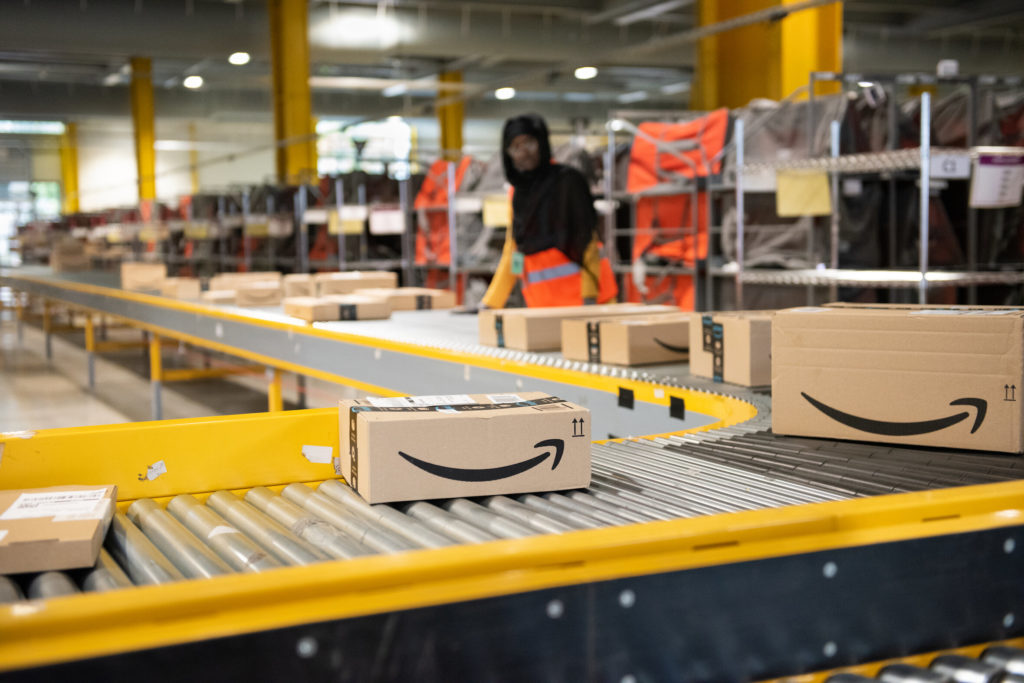Amazon says it will no longer test job applicants for cannabis, though it will continue to perform random drug screenings for employees who are on the job.
The policy reversal was announced on Tuesday by Dave Clark, Amazon’s CEO of consumer business, in a blog post on the company’s website.
“In the past, like many employers, we’ve disqualified people from working at Amazon if they tested positive for marijuana use,” Clark said. “However, given where state laws are moving across the U.S., we’ve changed course.”
He noted that the new policy would not apply to Amazon jobs regulated by the U.S. Department of Transportation, which requires that employers test applicants for cannabis.
Amazon also announced that it would start lobbying Congress in favor of the Marijuana Opportunity Reinvestment and Expungement Act or The MORE Act. The bill, which was reintroduced in the House of Representatives on May 28, would legalize cannabis at the federal level, expunge criminal records, and reinvest in communities impacted by The War on Drugs.
“We hope that other employers will join us, and that policymakers will act swiftly to pass this law,” Clark said.
The e-commerce giant’s decision to stop testing job seekers for cannabis was immediately hailed as a victory by advocates.
“This decision reflects today’s changing cultural landscape,” said Paul Armentano, Deputy Director of NORML, a national cannabis advocacy group, in a statement. “Suspicionless marijuana testing in the workplace, such as pre-employment drug screening, is not now, nor has it ever been, an evidence-based policy.”
Advocates have criticized cannabis drug screenings as an ineffective and discriminatory practice that is quickly becoming outdated as state laws and social norms evolve around the drug.
Tetrahydrocannabinol (THC), the psychoactive compound in cannabis, can stay in the body for many weeks depending on body fat and the amount of pot consumed. As a result, a urine test for cannabis can turn up positive weeks after a job applicant has stopped using cannabis.
There’s also little to no indication that using cannabis outside of work hours has an impact on employee performance. A 2020 study published by Occupational Medicine found “no evidence that cannabis users experienced higher rates of work-related injuries.”
Amazon’s cannabis policies have gotten the company in hot water before. In 2019, a New Jersey warehouse worker sued the company after he was allegedly wrongly fired for using cannabis despite having a state-issued medical cannabis card.
Amazon framed its decision to scrap pre-employment cannabis testing as a way to improve workplace conditions, titling its announcement: “Update on our vision to be Earth’s Best Employer and Earth’s Safest Place to Work.”
But the policy change will surely also help Amazon speed up recruiting as one of the world’s largest private employers, with a workforce of more than 1.1 million people. Bolstered by a pandemic-induced surge in online shopping, the company has been on a gargantuan hiring spree, adding more than 400,000 U.S. jobs to its payroll in 2020, according to its website.
The online retailer is currently ramping up hiring in the D.C. region as it prepares to build a second headquarters in Northern Virginia. In May, Amazon announced plans to hire 1,900 employees in and around its sprawling “HQ2” campus in Arlington.
Cannabis is slated to become legal in Virginia on July 1 after the state’s General Assembly passed a sweeping bill in April authorizing adult-use of the substance for recreational purposes.
In neighboring D.C, cannabis consumption has been legal since 2014. As of today, a total of 17 states have legalized the drug.
Photo by Frederic Legrand – COMEO via Shutterstock

